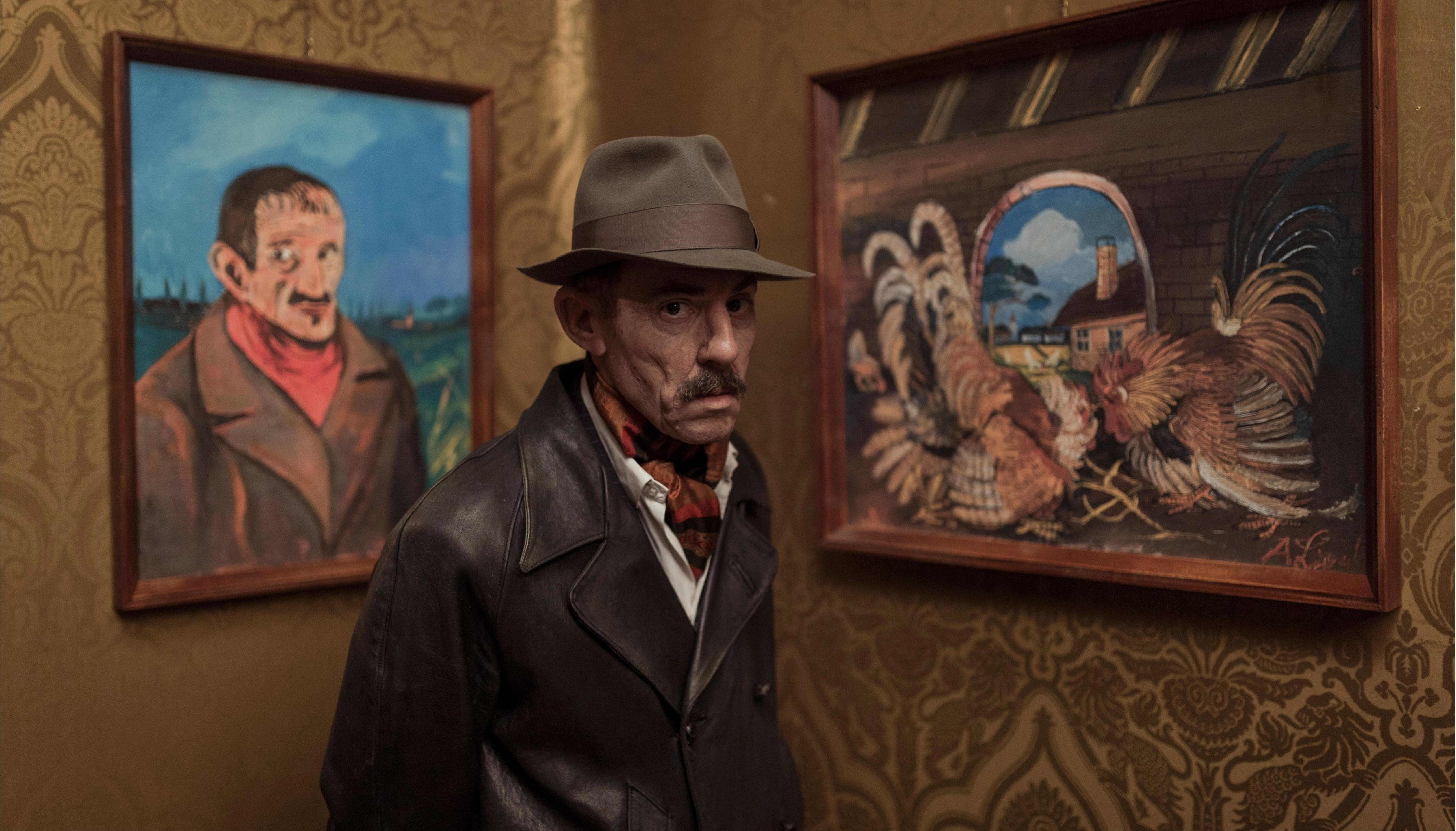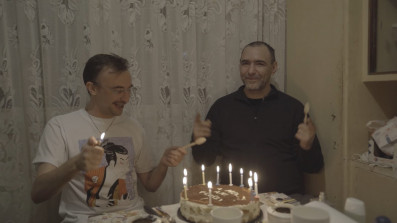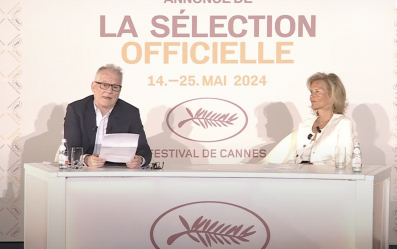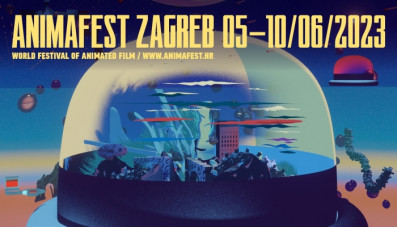
BERLINALE SPECIAL Day 2: Competition programme opens up with "The Intruder" and "Hidden Away" while Pixar presents their magicaly fantastic "Onward"
The death of ego and the growth of unification as the topical spirit of major films of the day
Day two of Berlinale has officially marked the beginning of competition program screenings. While everyone was still buzzing about the opening film My Salinger Year and marvelously strong acting of Sigourney Weaver and Margaret Qualley in a morning, in the afternoon focus of major film talks switched to the newest Disney/Pixar fantasy-goes-21st-century, Dan Scanlon's animation Onward.
Best known for his majestically directed Monsters University this time around Scanlon brings us the story of a land where fairies, elves, unicorns, dragons, centaurs, and other fantasy beings coincide in peace and harmony in a place called Mushroomton. "Long ago, the world was full of wonder," narration tells us in opening minutes, introducing us to what this world was, before the age of technological innovation didn't surpass and replace magic. Nowadays New Mushroomton resembles a common middle-class American town, filled with a comically decent amount of bits and pieces of remnants of gone supernatural age.
This is where we meet two teenage elf brothers Ian - voiced by Tom Holland - and Barley Lightfoot - voiced by Chris Pratt- living in a suburban home with their mother Laurel - voiced by Julia Louis-Dreyfus - and her occasionally visitor centaur boyfriend Officer Colt Bronco - voiced by Mel Rodriguez. Boys' father died of a terminal disease years ago leaving the two sons with barely any memories of him. Or that is what the boys thought! On Ian's 16th birthday his mother opens up the attic and brings the final gift for the two teens from their father. A magician's staff and instructions on how to bring him back to life for 24 hours. As they cast the spell that works halfway trough, Ian and Barley suddenly have to embark on an "old school" adventure, to get the Phoenix Gem needed to complete the spell they started and finally spend some time with their dad.
Onward brings out the spirit of fantasy games like Dungeons and Dragons or Magic: The Gathering and uses it as a driving force of the events that occur during Ian's and Barley's adventure. Every step they take on their quest for the Phoenix Gem is filled with new fantasy concepts that even they don't believe into. Things just get better with geek culture inspirations as 80's/90's influenced music, the fashion of the time as well as small American town mentality from the sitcoms of the time. Maybe the best embodiment of this is showcased in Manticore - voiced by Octavia Spencer- an ancient beast that has to make a living by switching her work from quest giver and the owner of an ancient inn, to an owner and all-day do-it-all manager of the fast-food joint.
Pixar never just made a pretty looking animated films, so of course, behind all this geekiness lies a rather heartwarming and pretty deep (for a children's film) story about brotherly love, a common teen feeling of being lost as well as growing out without a family member. Ian and Barley start from opposite sides of the specter, one lacking the courage to explore the world around him and interact with the society, while the other having too much courage and beeing obsessively into making the societal change according to the old values that he ends up in trouble for it. Their mutual growth gets explored sincerely and without any pretentiousness. As they are proceeding along their quest, the challenges that their opposite egos impose onto them and one another get to be more tempting than their "campaign".
Truth to be told, not everyone will necessarily be amused and interested in seeing Onward. Some might state that it is too male-centered, or that it calls for backward traditional values with brothers seeking "the ways of old", but that would be an oversimplification of this film for the sake of normative diversity.
All in all, Onward is honest and a refreshing twist of rather declining children adventure movie genre that has no intention to impose any high socio-political message. It is a coming of age story of accepting the self and others, surpassing the missed opportunities in life and cherishing what one might have but not see, right in front of them.
©2019 Disney/Pixar. All rights reserved - Berlinale press
The opening film of the Berlinale Competition Programme this year was Argentinian genre-cliche-evoking psychological thriller The Intruder, directed by Natalia Meta.
The flick follows Inés, a voice actress and a member of a Buenos Aires choir in a month after a traumatic episode in her life. As she survives the loss of a possessive macho ex-partner during their summer vacation, Inés starts using anti-anxiety medications. Still, her ability to distinguish the real and the imaginary with every moment is getting blurrier, as she starts questioning her inner voice, that seems to be possessed by the intruder.
Natalia Meta as a still fresh filmmaker, highly relying on genre tropes within her films - best seen in her previous work Mord in Buenos Aires- doesn't bring much new to a body possession/ inner voices world of psychological thriller/horror films.
There are a certain beauty and technical skill to this film that is rather undoubtful. From the opening moments, where the protagonist Inés is in a voice recording room, dubbing Japanese edgy and sexual horror film, the whole atmosphere radiates the colors of Giallo genre and vibes of early De Palma - mostly from Phantom of the Paradise, Blow Out and Body Double. As a film proceeds director manages to visually capture the beautiful spirit of b-flicks but sadly with all that style doesn't come that much of a substance.
Probably the most off-putting element of the film is the slow tempo that just doesn't seem to work with a deeply sharp and active story. As Inés is switching between her two jobs and her private life there is no time for a viewer to breathe and reflect on events that are happening because there are constant actions and dialogue that require attention. But these actions and dialogues are just plain, they are rarely giving any new information and quickly become painfully repetitive.
The strongest element of the film is the premise that the protagonists' "inner voices" get embodied in characters that surround her. But as she needs to figure out how to act upon them, what to embrace and what to push away from herself, this gets once again to a rather bland execution. The seek of thrills and chills overtakes the potential for exploration of sex, gender or any other kind of identity.
Overall, The Intruder is an average and quickly forgettable stylized genre piece that somehow manages to miss almost every major possibility - that its premise has - to become a deep psychological thriller peace.
©Rei Cine SLR, Picnic Producciones SLR - Berlinale press
The second film that had its debut yesterday in the Berlinale Competition Programme was Giorgio Diritti’s Hidden Away, an impressionistic biopic of a Naïve artist Antonio Ligabue.
The film opens up with frenzy chopped bits and pieces of Antonio's youth, the mother that gives him away, the altercation with stepmother, troubles he lived trough after being hospitalized in a psychiatric clinic... and as the pale memories slow down and are replaced with artists later life, we start getting a troubled artist story from the moment he has been expelled from Switzerland to Italy against his will.
It is always hard to talk about an impressionistic film in general, so Diritti's courage to make an artist biopic in this way is truly admirable. The way the film is structured, pushing the harsh artist reality to a front view, while in a background telling the story of lost love, rejection, fear, respect and admiration of Ligabue towards the women, enables viewers to emerge deeply into the mind of a genius.
Quick and choppy editing that eliminates the concept of time and place adds a lot to this amazing impressionistic approach. Still, there are a few visual hints, with the shift of color pallet, are given out through the film to make a viewing bit easier to less focused/engaged viewers.
The highlight of this film is the stunning performance by Elio Germano that manages to truly embody a troubled painter. With different complex emotions, states of mind as well as physical troubles the painter had, this wasn't an easy task, but Germano did it with a sincere and uncanny depth.
Hidden Away isn't a film for mass audiences or young art students who are quickly trying to skim over the Ligabue's works. It is rather a complex piece of work that can only be appreciated by those who truly enjoy and understand Swiss/Italian Naïve artists as well as those who are ready to emerge into the painful mind of an artist.















